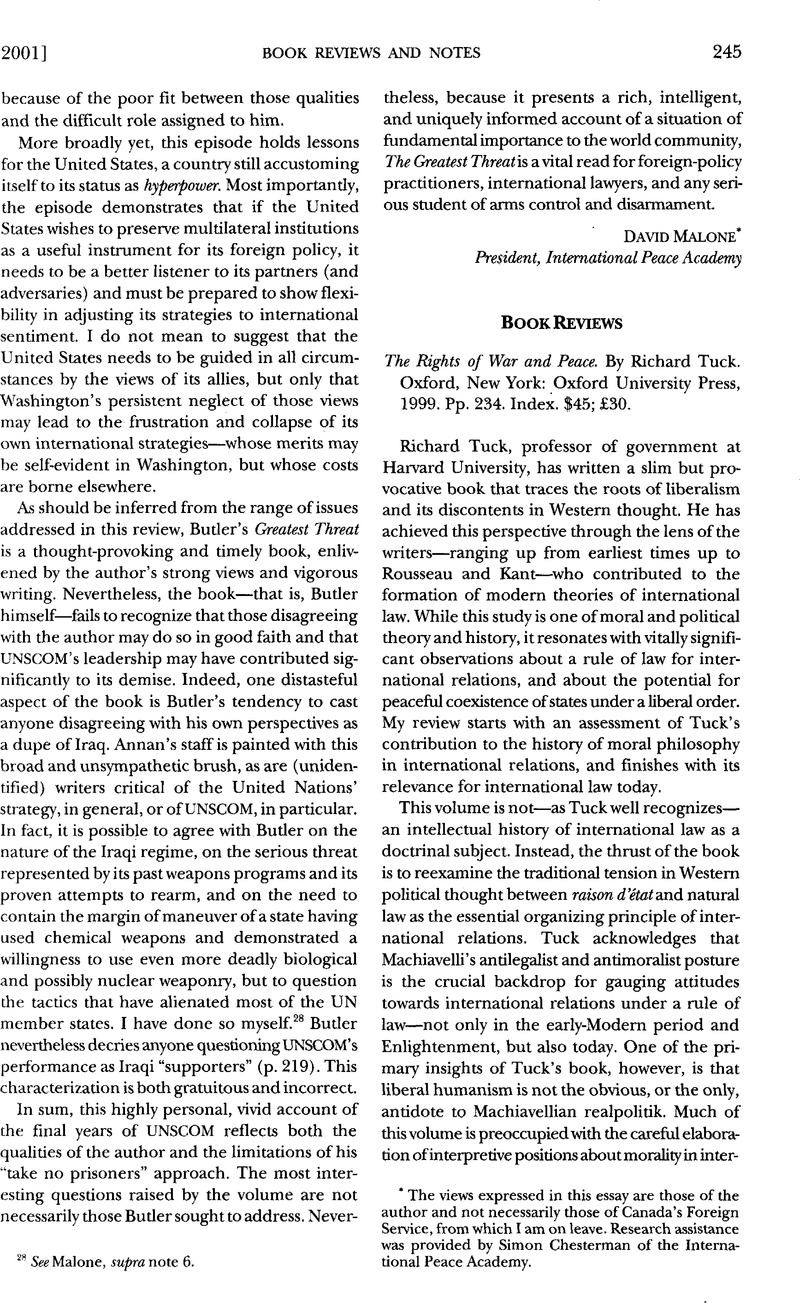No CrossRef data available.
Published online by Cambridge University Press: 30 March 2017

* The views expressed in this essay are those of the author and not necessarily those of Canada’s Foreign Service, from which I am on leave. Research assistance was provided by Simon Chesterman of the International Peace Academy.
1 See Onuf, Nicholas G., Civitas Maxima: Wolff, Vattel and the Fate of Republicanism, 88 AJIL 280 (1994)CrossRefGoogle Scholar.
2 2 Jean-Jacques Rousseau, Political Writings 147 (C.E. Vaughan ed., 1915).
3 See Jörg, Fisch, When Will Kant’s Perpetual Peace Be Definitive? 2 J. Hist. Int’l L. 125 (2000)Google Scholar.
4 De Officiis 35 (Walter Miller trans., Harvard Univ. Press 1913).
5 See Anghie, Antony, Francisco de Vitoria and the Colonial Origins of International Law, 5 Soc. & Legal Stud. 321 (1996)CrossRefGoogle Scholar; Kennedy, David, Primitive Legal Scholarship, 27 Harv. Int’l L.J. 1 (1986)Google Scholar; Kingsbury, Benedict, Grotius, Law, and Moral Scepticism: Theory and Practice in the Thought of Hedley Bull, in Classical Theories of International Relations 42 (Clark, Ian & Neumann, Iver B. eds., 1996)Google Scholar; Onuf, supra note 1; Tesón, Fernando, The Kantian Theory of International Law, 92 Colum. L. Rev. 53 (1992)CrossRefGoogle Scholar.